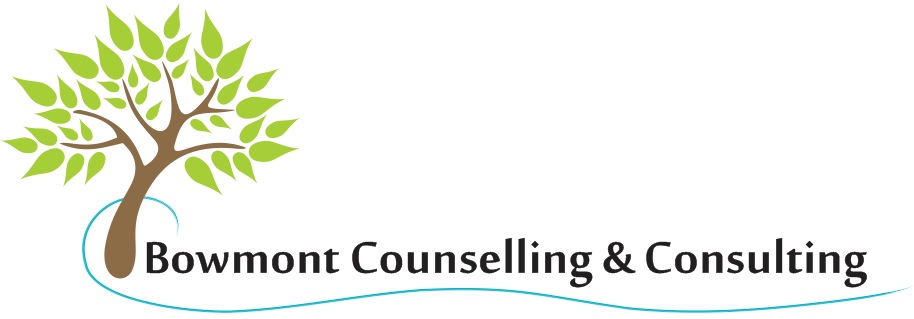
Stephanie Sikorski, M.Sc., R.Psych.
Land Acknowledgement & Situating Myself
In the spirit of respect and reciprocity, I acknowledge that I reside on Treaty 7 Territory, traditional territories of the Blackfoot Confederacy (comprising the Siksika, Piikani, and Kainai First Nations), as well as the Tsuut’ina First Nation, and the Stoney Nakoda (including the Chiniki, Bearspaw, and Goodstoney First Nations) and the Homeland of the Métis. I am grateful to all First Peoples who have lived in and cared for these lands for generations and whose presence and wisdom is vital to our shared community. I affirm the relationships we have to one another and to the land upon which we all depend, recognizing that our well-being is inextricably interconnected. I strive to understand and live up to my responsibilities within these relationships as we journey towards reconciliation.
My name is Stephanie Sikorski (she/her) and I am a descendent of European settlers. I was born on the land the traditional Blackfoot called Moh’kins’tsis, which we now call “Calgary”. As a white, able-bodied, cis-heterosexual settler, I acknowledge I have unearned privilege and have benefited economically and physically from harmful systems that continue to impose economic oppression, systemic racism, and violence. I am committed to reconciliation through an ongoing practice of increasing Indigenous cultural competency as well as creating an environment of cultural safety and humility, allyship, and decolonizing psychology by divesting from harmful oppressive systems (such as white supremacy, colonialism, cis-heteropatriarchy, toxic individualism, ableism, etc.,) and deconstructing the cultural assumptions of mainstream psychology that flow from these harmful systems.
School & Work History
I am a Registered Psychologist with the College of Alberta Psychologists and a Certified Canadian Counsellor with the Canadian Counselling and Psychotherapy Association and I have over 19 years of counselling experience. I received my Master of Science degree in Counselling Psychology from the University of Calgary in 2007. My focus of study was intimate partner abuse, the socialization of gender and gendered violence. My thesis looked at the value of mindfulness meditation for female survivors of intimate partner abuse.
From 2004 to 2005, I completed my practicum at Calgary Counselling Centre where I had the opportunity to work with a diverse range of clients. From 2005 to 2008, I specialized in the area of domestic violence, working with children, adolescents, and adults at the Calgary Women’s Emergency Shelter and the YWCA of Calgary. I provided individual therapy, facilitated a variety of groups, and provided in-home parenting support.
In 2008, I moved to an Employee Assistance Program (Homewood Health) where I provided individual, family and couples therapy and worked with children, teens and adults. I also carried out substance abuse and fitness to work assessments, as well as conducted workshops on a wide variety of topics to various organizations. Within my first year, I was promoted to Clinical Manager for one of the largest employee health assessment services in Canada and was responsible for overseeing assessments and return to work planning. After leaving my role as Clinical Manager in 2011 to work for Alberta Health Services, I continued to provide services to Homewood Health as a clinical consultant acting as quality assurance reviewer for assessments.
I worked for 4 years as a Behavioural Health Consultant for Alberta Health Services and the Calgary West Central Primary Care Network. I provided consultations to family physicians and provided counselling support to their patients for a wide variety of concerns.
In 2015, I moved to Mount Royal University to work in the Student Counselling Centre where I provided counselling support and advocacy for MRU students. I also had the opportunity to provide counselling services and co-facilitate a discussion group one day a week in the Iniskim Centre, which suports Indigenous students.
I started my own part-time private practice in 2014. Since 2017, I moved to full-time private practice.
Counselling Approach
I work primarily from a person-centered, strengths-based, trauma-informed, intersectional-feminist framework. I believe the most important factor in therapy is the relationship and I strive to create a safe, non-judgemental, compassionate environment where you can work through difficult issues and connect to your values and strengths.
I have received training in various modes of psychotherapy over the years and I tailor treatment based on my client’s wants and needs. I can provide Cognitive-Behavioural Therapy (CBT), Exposure and Response Prevention (ERP), Mindfulness, Acceptance and Commitment Therapy, Emotionally Focused Therapy, Internal Family Systems, Narrative Therapy, and EMDR.
I specialize in anxiety, depression, stress, perfectionism, grief/loss, trauma, improving self-worth and relationship and attachment issues.
I am 2SLGBTQ+ and kink affirming, culturally sensitive, and promote a Health at Every Size approach.
Professional Memberships
Registered Psychologist through the College of Alberta Psychologists (2011)
Member of the Canadian Psychological Association (2011)
Member of the Alberta Society for the Promotion of Sexual Health (2014)
Member of the Canadian Counselling & Psychotherapy Association (2016)
Past Member of the Alberta Clinical Hypnosis Society (2012-2021)
Past Member of EMDR Canada (2017-2020)
Personal
I am an outdoor enthusiast and enjoy hiking, gardening, camping and stand up paddleboarding. I also enjoy home improvement and design projects and had a lot of fun figuring out DIY skills when converting our mini-van into a camper to use in the summer months.
I have been married over 10 years. My spouse and I were born and raised in Moh’kins’tsis/Calgary and we share a passion for social justice, learning, and “unlearning”. We enjoy spending time with friends and family, listening to music and podcasts, and building miniature models together.
For relaxation, I enjoy watching comedies, dramatic series, and movies; reading fiction and memoirs; listening to psychology-related podcasts; and doing yoga and meditating.
